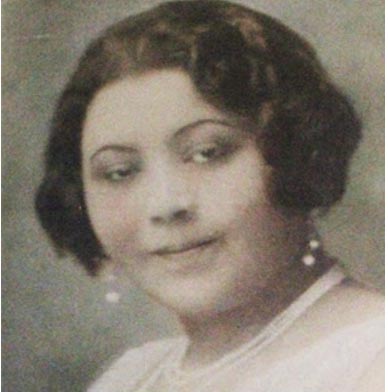
WOMEN OF ACHIEVEMENT
2024
HERITAGE
for women whose achievements still enrich our lives:
Madame Florence Cole Talbert McCleave
Florence Cole Talbert McCleave seemed to have all the ingredients for a successful career in opera: talent, desire, training, and critical acclaim. And while she briefly achieved her dream on European opera stages, she was unable to find the roles she sought in the United States as an African American soprano in the 1920’s. Instead of a career in opera, she spent the latter part of her life teaching and spreading her love of music in Memphis for three decades.
Born in Detroit in 1890, Florence was surrounded by music. A grandmother and both her parents were singers, and her mother had traveled with the famed Fisk Jubilee Singers. Florence studied piano from age 6, adding voice lessons after her family moved to Los Angeles. She was captivated by opera after she attended a performance of Aida as a teenager. She later told an interviewer: “I was impressed by the opera as nothing had ever moved me before. I sat breathlessly watching the artists, and as the opera progressed, a desire (an impossible desire, so it seemed at the time) took possession of me. I wanted to sing the title role in Aida. I could see myself thrilling large audiences as I myself was thrilled.”
Focused on that goal, Florence graduated from the University of Southern California School of Music, spent a year traveling with Hahn’s Jubilee Singers, and was married briefly to musician Wendell Talbert. She then settled in Chicago and enrolled at the Chicago Musical College where she was the first black commencement soloist in 1916. She continued her training while giving concerts in U.S. cities until she traveled to Europe in 1925 for additional training. Her breakthrough performance was her debut in Cosenza, Italy in March 1927 in the title role of Aida. She is believed be the first black woman to perform that role with a professional European opera company. For several months, she lived her dream on stages in Paris, Rome, and other European cities, earning praise such as “her voice of velvety quality was such as to overwhelm the audience.”
Florence returned to the United States that fall, resuming her concert career in African American communities but never breaking into opera despite being known as “The First Lady of Grand Opera” by the National Negro Opera Guild. She eventually taught voice and music at several historically black colleges in the South. She moved to Memphis in 1930 after marrying Memphian Dr. Benjamin F. McCleave, whom she met while touring.
It was here that Madame McCleave built her second musical legacy, one of teaching, and community involvement. She was an organizer of the Memphis Music Association, a branch of the National Association of Negro Musicians. She brought renowned artists including Marian Anderson, Leontyne Price, and George Shirley to sing in the African American community while The Met was touring to Memphis in a white-only venue. Her students included Stax great Carla Thomas and Manassas High graduate Vera Little, a mezzo-soprano who became the first African American singer to perform for a pope in 1959.
Madame McCleave died in 1961 at the age of 70. Another chapter began 50 years later when the new Opera Memphis general director Ned Canty visited the Pink Palace museum and spotted Madame McCleave’s story in an exhibit. Canty wondered why he had never heard of her. He described the experience as a “wakeup moment” that led Opera Memphis to collaborate with community partners in creating The McCleave Project – an effort to celebrate Madame McCleave more broadly in Memphis and to deepen the opera company’s engagement with issues of equity and diversity in opera. The McCleave Project began in 2017 with performances by African American singers in several primarily African American neighborhoods. A year later the project launched fellowships for young directors and conductors of color. Two McCleave Fellowships were awarded in 2018 and 2019 before the program was put on hold during the pandemic. Madame McCleave was inducted into the Memphis Music Hall of Fame in 2019.
Opera Memphis is preparing to resume the fellowships, and the fruits of the program will be visible in May when the first McCleave Fellow — Dennis Whitehead Darling – returns to direct La Boheme. Fittingly, the production will not be set in the traditional setting of Paris in the late 1830’s. Instead it will be Memphis in 1915 and inspired by artists working on Beale Street at the time.
Madame McCleave died on April 3, 1961.

